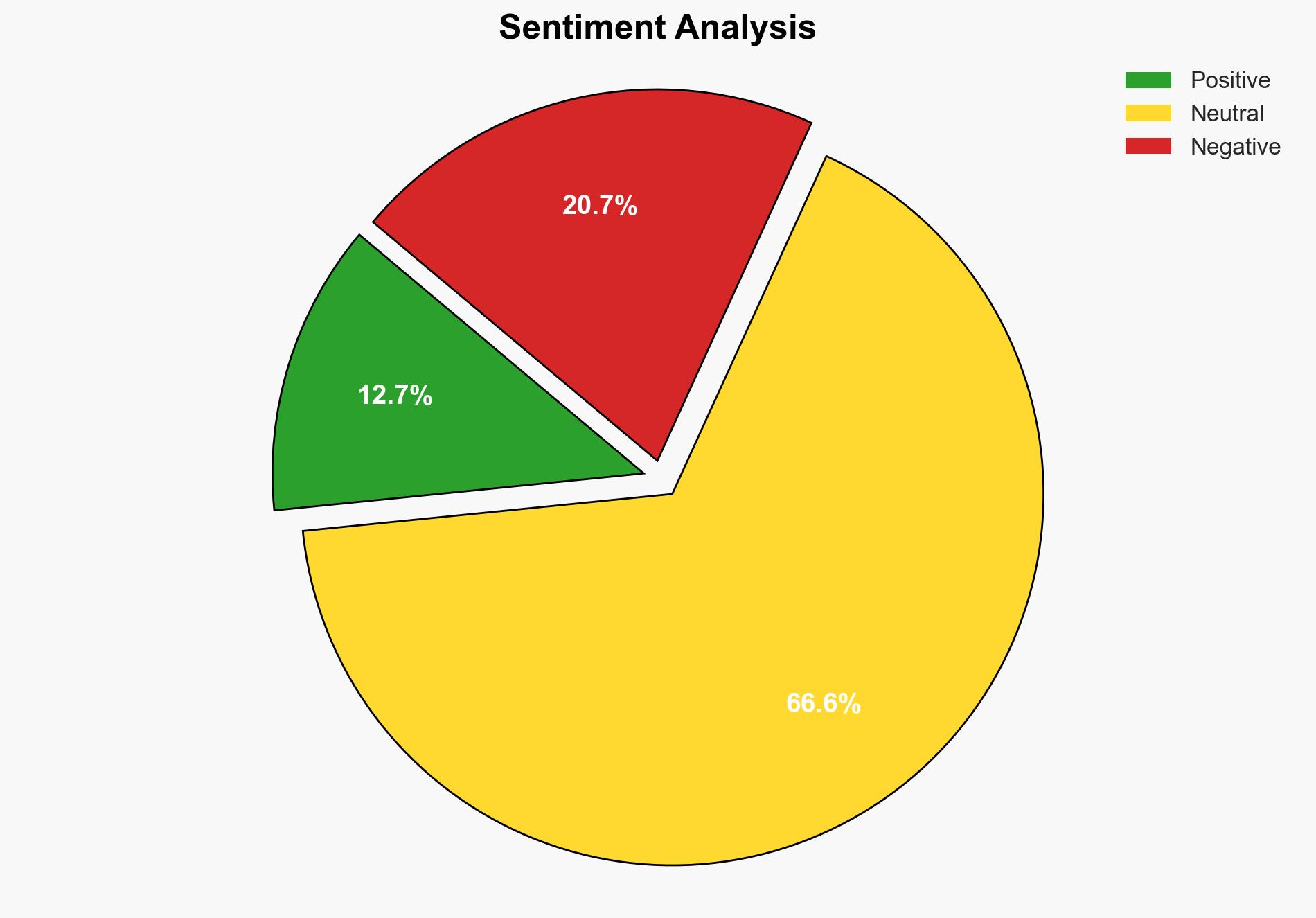A mockery Mass trial begins in Tunisia of political opponents – Al Jazeera English
Published on: 2025-03-04
Intelligence Report: A Mockery Mass Trial Begins in Tunisia of Political Opponents – Al Jazeera English
1. BLUF (Bottom Line Up Front)
The mass trial of political opponents in Tunisia, denounced by human rights groups as a crackdown on dissent, poses significant risks to national stability and democratic progress. The trial involves high-profile critics of the Tunisian president, raising concerns over politically motivated charges and the erosion of judicial independence. Immediate attention is required to address potential human rights violations and to prevent further destabilization.
2. Detailed Analysis
The following structured analytic techniques have been applied for this analysis:
Scenario Analysis
The trial could lead to increased political unrest and international condemnation. Potential scenarios include:
- Escalation of protests and civil unrest in response to perceived judicial injustices.
- Increased international pressure and sanctions against Tunisia.
- Potential for political reform or further authoritarian measures by the government.
Key Assumptions Check
Assumptions include:
- The trial is politically motivated and aims to suppress opposition.
- Judicial independence in Tunisia is compromised.
- International human rights organizations will continue to pressure the Tunisian government.
Indicators Development
Indicators to monitor:
- Increased frequency and intensity of protests in Tunisia.
- Statements and actions from international bodies condemning the trial.
- Changes in the Tunisian government’s approach to political dissent.
3. Implications and Strategic Risks
The trial poses significant risks to Tunisia’s national security and regional stability. The erosion of democratic gains and judicial independence could lead to increased civil unrest and potential economic repercussions. The international community’s response may further isolate Tunisia, affecting its diplomatic and economic relations.
4. Recommendations and Outlook
Recommendations:
- Engage in diplomatic efforts to encourage fair judicial proceedings and the release of political detainees.
- Support initiatives that strengthen judicial independence and democratic institutions in Tunisia.
- Monitor and report on human rights conditions to international bodies for potential intervention.
Outlook:
Best-case scenario: The trial leads to increased international dialogue, resulting in judicial reforms and the release of political prisoners.
Worst-case scenario: The trial exacerbates political tensions, leading to widespread unrest and international isolation.
Most likely outcome: Continued political tension with periodic protests and international criticism, but limited immediate change in government policy.
5. Key Individuals and Entities
The report mentions significant individuals involved in the trial:
- Kais Saie
- Jaouhar Ben Mbarek
- Nadia Akacha
- Kamel Guizani
- Abdelhamid Jelassi
- Khayam Turki
- Issam Chebbi
- Ghazi Chaouachi
- Ridha Belhaj
- Sahbi Atig
- Ferjani
- Noureddine Bhiri
- Rached Ghannouchi
- Abir Moussi
These individuals are central to the ongoing political dynamics in Tunisia.





